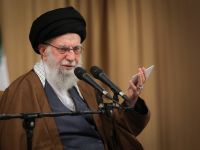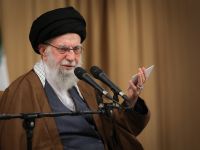Investment Incentives
The Foreign Capital Investment Regulations provide for a number of investment incentives to foreign companies and individuals wishing to conduct business in Saudi Arabia.
The Saudi Industrial Development Fund makes interest-free loans to industrial companies of up to 50 percent of the total cost of the project. Project costs includes agreed pre-operating costs, investment in fixed assets and working capital. A 50 percent loan requires Saudi participation which is not less than 50 percent. If Saudi participation is lower, the loan is reduced proportionally. Soft loans are repayable in five to ten years after a one or two year grace period from the date of production. Although the loans are interest-free, an administrative fee of 2.5 percent is normally charged.
All commodities entering the Kingdom for industrial production are exempt from import duty, including spare parts and all plant and equipment required to set up companies.
In addition, industrial facilities are allowed to rent at low to nominal rental fees. They also pay reduced rates for water and electricity. The following five categories of development qualify for foreign investment:
-Industrial development including raw material into manufactured or semi-manufactured products, transferring semi-manufactured products into fully manufactured products and packaging fully manufactured products;
-Agricultural development including the cultivation of fruits, vegetables, nurseries, greenhouses, animal resources and fisheries;
-Health development including building, maintenance, operation and management of hospitals, clinics and health centers;
-Services relating to industries such as tourism, training, technology, environment protection, shipping and information systems; and
-Contracting.
Other Incentives
Saudi Arabia imposes no exchange control regulations on the entry and repatriation of funds, profits and salaries paid to foreigners employed in the Kingdom. Saudi law prescribes no specific debt-to-equity ratios as a prerequisite to doing business in Saudi Arabia, but certain investment incentives may require specified debt-to equity ratios to be satisfied.
Trade Agreements
Saudi Arabia is a member of the GCC, and as such, is subject to the GCC agreements regarding trade. These agreements are described in the section on Trade Agreements in the chapter on Bahrain.
Imports and Exports
Customs
Many items are free of customs-duties, including food, heavy machinery and raw materials. The basic duty is 12 percent, although certain protected industries, favored under the Regulations for the Protection and Encouragement of National Industries, enjoy a 20 percent protective tariff against competing imports.
In accordance with the Unified Economic Agreement among the GCC states, products manufactured in any one of the member states will be exempt from customs duties when exported to any of the GCC states provided that 51 percent of the factory equity is owned by a GCC national.
Imports
Only Saudi nationals and 100 percent Saudi-owned companies may import goods. Importers must be licensed by the Ministry of Commerce and must consult the appropriate ministry about the goods or materials to be imported.
Standard measurements, packaging, ingredients and safety standards should comply with the rules established by the Saudi Arabian Standards Organization. In order to enter the country, imports must have certificates of origin. Any product deemed contrary to Islamic law, e.g., pork products and alcoholic beverages, may not be imported.
Exports
Other than antiques, Arabian horses, livestock or subsidized goods and materials which are in short supply, most goods can be exported from Saudi Arabia. Exporters may need an industrial or an agricultural license.
Protective Tariffs and Non-Tariff Trade Barriers
Saudi tariff protections are moderate, but have been increased over the years. A number of Saudi "infant industries" now enjoy 20 percent tariff protection as compared to the general rate of 12 percent. Non-tariff barriers are also increasing and include preferences for national and GCC products in government procurements. Presently, 30 percent of major government procurement contracts are set-aside for local contractors. Foreign contractors obtain imported goods and services exclusively through Saudi agents. Furthermore, an economic offset requirement has been invoked which mandates reinvestment of a portion of the government contract value in indigenous industries for certain high value government procurement contracts.
Trade Barriers
Import licenses are not required for virtually all goods. Foreign exchange for imports is readily available and no restrictions on financial transfers or exchange controls exist.
Labor Law
Most of the provisions dealing with labor law and employee’s rights are included in the Labor and Workmen’s Regulations of 1969. The establishment of labor unions is prohibited and basically there is no collective labor law in the Kingdom.
The regulations provide for enforcement of employee’s rights, record-keeping and reporting, protection of women and children, inspection of places of work provision of medical and other facilities, etc. Labor benefits are mandatory and may not be waived.
According to the regulations, every employee is entitled to a written employment contract, although an employment contract does not necessarily have to be in writing in order to be valid.
With minor exceptions, the maximum work week is eight hours per day for a six day week. During the month of Ramadan, the maximum work week decreases to thirty-six hours.
The Saudi Labor Regulations distinguish between specified and unspecified term contracts. If the employment relationship is for a specified period, the employee may only be terminated “for cause” as defined in the Regulations, which usually means a fundamental breach of the employment contract by the employee. If the employment contract states no specific term then the worker may be terminated for a valid reason only, which does not reach to the level of “cause”. In all cases, the employee must be given a requisite statutory termination notice.
Saudi labor laws ensure preferential treatment for Saudis in hiring over equally qualified foreign nationals, mandating that three-quarters of every employer’s work force must consist of Saudis and that no less than 51 percent of the employers’ total payroll be paid to Saudis.
Environmental Law
Saudi Arabia is a signatory to several international treaties concerning the environment. These treaties include:
- The 1967 Outer Space Treaty;
- The Kuwait Regional Convention for the Protection of the Marine Environment from Pollution
- The 1992 Regional Convention for the Conservation of the Red Sea and the Gulf of Aden Environment;
- The 1989 Basel Convention on the Control of Transboundary Movements of Hazardous Wastes and their Disposal.








